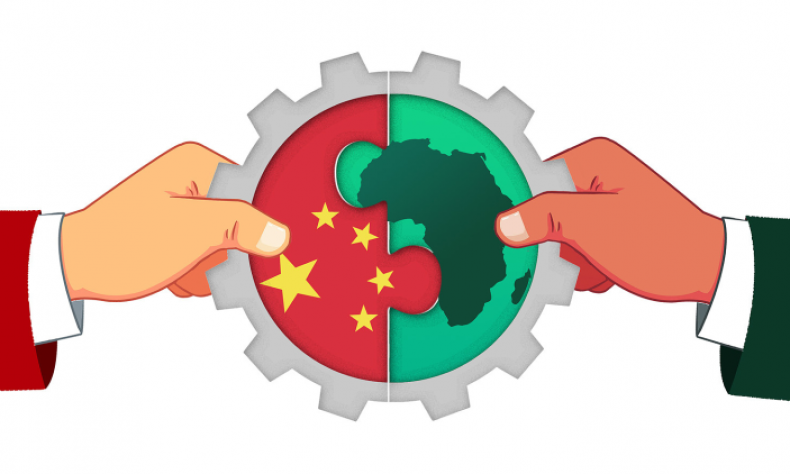UN Coordinator: China-Africa Cooperation “A Game-Changer”

In the continued investment in the South-South cooperation and the green and sustainable Belt and Road Initiative, we see China moving towards an ecosystem that provides a network for prosperity, wellbeing, education on a global scale.
Editor’s note: China International Publishing Group (CIPG), with the support of the People’s Government of Yunnan Province, and the China Public Relations Association and Renmin University of China, hosted the International Forum on Poverty Governance and Development Towards Modernization in Nujiang, Yunnan, on May 18. The following is taken from UN Resident Coordinator Siddharth Chatterjee’s virtual address to the Forum.
The Forum brought together government officials, foreign representatives, and academic experts, to share the experience of China and other countries in poverty reduction.
Delivering a virtual address to the International Forum on Poverty Governance and Development Towards Modernization, UN Resident Coordinator Siddharth Chatterjee congratulated China on its historic achievement in eliminating extreme poverty, adding that the developing world can learn much from the country’s incredible success.
“The transformation of the lives of nearly 100 million people from rural poverty in the last 7 years demonstrates the importance of the political will showcased by President Xi Jinping and the government of China”, he added.
The story of China’s development into the world’s largest economy and its key takeaways are of “tremendous importance” to those developing nations, particularly in Africa, Chatterjee explained.

Game-changer for Africa
Acknowledging the “incredible development synergies” between China and Africa, the UN coordinator called for greater cooperation and the exchange of resources, knowledge, and technical expertise. “Now is the time to deepen the common development of China and Africa”, he said.
Consider this, Chatterjee told attendees, approximately 40 percent of Africa’s agricultural produce is wasted every year due to fall’s harvest loss. Meanwhile, in China, the nation’s food supply is expected to grow to over 650 million metric tons in 2021. “Here again lies the value of the world and China’s poverty reduction efforts,” he added.
Whether in manufacturing, infrastructure, its open markets, or access to the agricultural sector, “China’s poverty reduction experience is worth learning from”.
Turning to the pandemic’s impact on global poverty alleviation efforts, Chatterjee told the Forum that Covid-19 threatens to reverse some of the world’s hard-won victories.
The health crisis has also been an economic, social, and humanitarian crisis causing much despair and misery for low-income communities and many vulnerable populations in our societies, he said.
According to The World Bank, up to 150 million people will have been pushed back into extreme poverty by the end of 2021.
As China is now transitioning towards a high-quality development and rural revitalization model, Chatterjee noted, it is moving to “protect the gains of the past and advancing international development cooperation”.
“In the continued investment in the South-South cooperation and the green and sustainable Belt and Road Initiative, we see China moving towards an ecosystem that provides a network for prosperity, wellbeing, education on a global scale.”
Efforts such as these, if implemented in full, could lift 7.6 million people from extreme poverty, 32 million from moderate poverty — a potential game-changer, especially for African nations”, he added.
 Facebook
Facebook
 Twitter
Twitter
 Linkedin
Linkedin
 Google +
Google +










